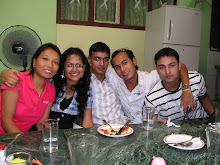While I was reading Khaled Hosseini's first (and acclaimed) novel The Kite Runner, the very title of his second work had struck me as poetic - A Thousand Splendid Suns. It conjured up visions of lush palm trees basking under the brightness of fabulously slanting sunrays. I briefly mused on this, added this book to the 'must read' list on my mind, and promptly forgot all about it.
Memories of the alluring title were stirred up when Sudin asked me which book I wanted as a gift. When I declined to name one, he threatened to send me a book of his choice, hinting (not so subtly) that it could be one I had already read. So I made an easy decision, he faithfully dispatched it and soon the novel with an intriguing jacket of a veiled girl-woman in oversized heels reached me.
Personally, reading it proved to me even more intriguing than the first one. Perhaps because this one is so much involved with women - their wretched existence, the unspeakable trials, the flimsy bleak interludes they come to regard as happiness. Hosseini has definitely written about the pains of women as though he has undergone them - he has become much more confident of his expressions and the words just seem to obey his command. When he describes Mariam's lengthy face or the hut where she spends her childhood, we immediately understand what he means to say - he has the ability of building a vivid, animated picture.
The plot itself is simple and credible - yet not ordinary. It begins at the point where the illegitimate Mariam longs to enter her sweet-talking, cowardly father's upper-class world even though constantly rebuffed by her epileptic mother. Her childish desire to watch Pinnochio in her father's theatre overwhelms her and she runs away to his palatial home, soon to find that she is left with neither her mother nor her father as she had idolized him. Coerced into marriage with a much older shoemaker, her troubled life takes a slightly better turn. That is until she is stricken with one miscarriage after another, her husband turning more brutal with the loss of each son he pines for. His cruelty can be felt when he forced Mariam to chew a handful of pebbles until her molars crack apart. It is almost too agonizing to read these words chiseled together so sensitively.
Soon after this enters the earlier introduced character of Laila, who knows no world except her protective, encouraging one and no love except Tariq, her passionate one-legged savior. The rest of the tale is taken up with the opposing, and later complimentary relation between the two women - each day spent is a misery, each search for freedom leads to a backward shove, each struggle for happiness leads to a dead end.
The writer is an expert at touching hearts and opening minds. He puts before us situations so inhuman that we become thankful even for every unhindered breath we take. His technique of meshing the local language with English is quite endearing - as is his clever manner of knitting in open secrets and shocking revelations in between. He has also included a lot of political background, which makes it all the more easier to understand the scenario. This in turn makes the work substantial and concrete, as though tragedies of such magnitude actually befell our fellow-sisters far away when we were busy squabbling over which dress t wear to a party.
Even amidst all my admiration, I must say something - this book is an extremely glooming one. It has the power to haunt one with its pathetic images and the sheer hopelessness of human life. It leaves you suffocated, perhaps even depressed. Even the romantic angle, with all its tenderness, is heart-wrenching. And yet out of all those broken shards, devastation, filthy truths and pessimism, Hosseini allows room for a miniscule amount of joy and cheer at the end - leaving us with an impression, as the poet Saeb-e-Tabrizi would say, of a thousand splendid suns.
Subscribe to:
Post Comments (Atom)

1 comment:
seems like i should read this novel too. great post keep it up
Post a Comment